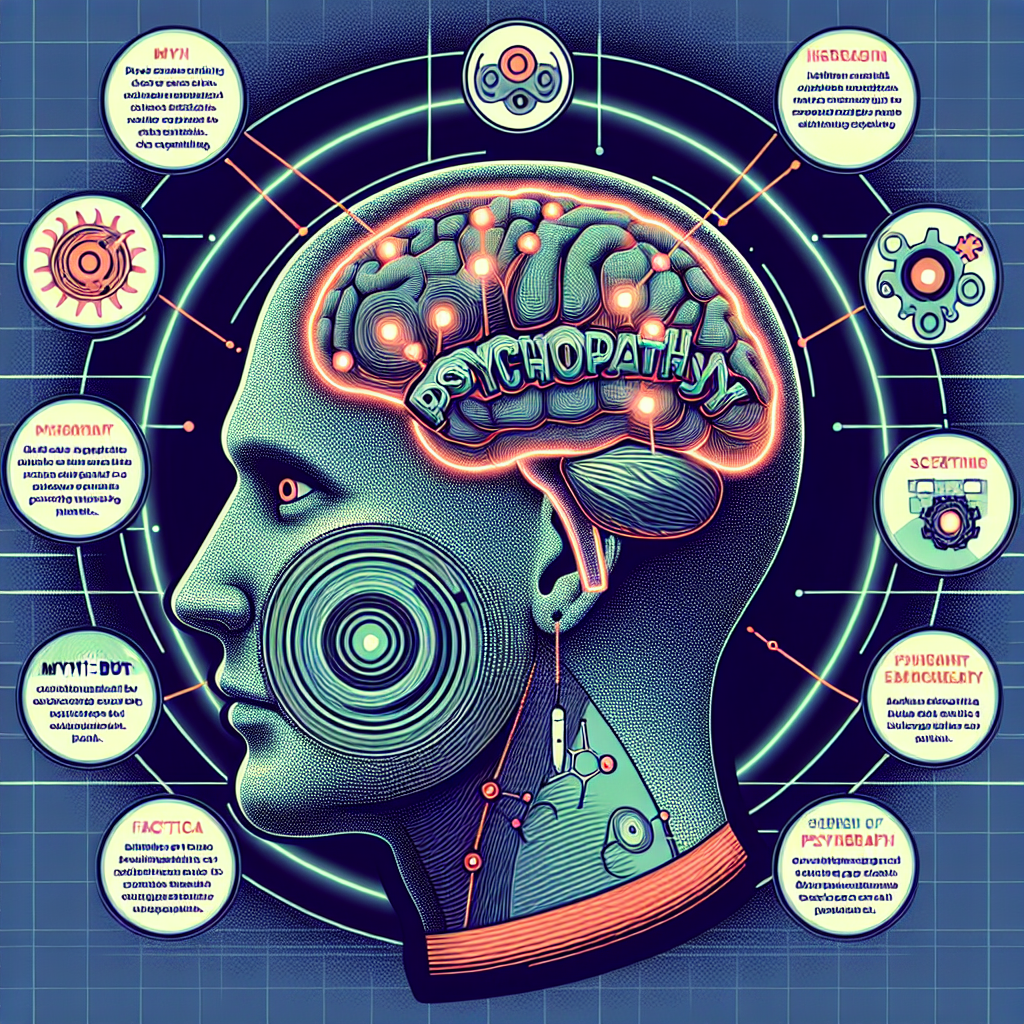Introduction
Understanding Psychopathy: Myths, Facts, and the Science Behind the Disorder is not just a topic for criminologists and mental health professionals; it’s an essential exploration for anyone seeking to understand human behavior. Psychopathy often evokes images of cold-blooded killers or ruthless executives. However, this complex psychological condition extends far beyond stereotypes. By debunking myths, aligning facts with scientific understanding, and appreciating the nuance of this disorder, we can better comprehend its implications in society.
The Importance of Understanding Psychopathy
In our fast-paced, interconnected world, interactions with individuals who exhibit psychopathic traits are more frequent than we might realize. From charismatic leaders to charming coworkers, these traits can manifest in various walks of life. A deeper understanding can equip us to recognize and respond to manipulative behaviors effectively, enhancing personal safety and societal awareness.
What is Psychopathy?
Definition and Diagnostic Criteria
Psychopathy is often misused in everyday conversations, but clinically, it encompasses a specific set of characteristics. According to the Diagnostic and Statistical Manual of Mental Disorders (DSM-5), psychopathy lies on the spectrum of Antisocial Personality Disorder (ASPD) but with distinct traits such as:
- Lack of Empathy: Inability to feel or understand the emotions of others.
- Manipulativeness: Tendency to manipulate situations and people for personal gain.
- Superficial Charm: Ability to project charisma and charm, often misleading others.
- Antisocial Behavior: Disregard for societal norms and laws.
Case Study: Ted Bundy
Ted Bundy, one of the most infamous serial killers, exhibits classic psychopathic traits. His charm allowed him to lure victims with ease, while his complete absence of remorse highlights the emotional detachment that often defines psychopathy. Analyzing his behaviors through the lens of understanding psychopathy opens a dialogue about the impacts of such traits within society.
Myths About Psychopathy
Myth 1: All Psychopaths are Violent Criminals
One prevailing myth is that all individuals with psychopathy are violent criminals. While it’s true some exhibit violent tendencies, many live seemingly normal lives.
Fact: Psychopathy Exists on a Spectrum
Many individuals with psychopathic traits function in society without engaging in criminal behavior. They may excel in high-pressure environments such as corporate settings, where manipulation can be an asset rather than a liability.
Myth 2: Psychopathy is Untreatable
Another common misconception is that psychopathy is a mental condition that cannot be treated or managed.
Fact: Potential for Management
Though challenging, there are therapeutic approaches that can help individuals manage their behaviors and improve their social functioning. Cognitive-Behavioral Therapy (CBT) shows promise in reducing antisocial behaviors and improving emotional regulation.
Understanding the Science
Neurological Basis of Psychopathy
Recent research has uncovered intriguing insights into the brain structure of individuals with psychopathy. Neuroimaging studies show differences in the amygdala and prefrontal cortex, areas associated with emotion regulation and decision-making.
| Brain Region | Role in Psychopathy |
|---|---|
| Amygdala | Responsible for emotion processing; often underactive. |
| Prefrontal Cortex | Involved in decision-making and impulse control; may show atypical activity patterns. |
Genetic and Environmental Factors
Psychopathy is shaped by both genetics and environment. Studies suggest that individuals with a family history of antisocial behavior are at increased risk. However, factors such as childhood trauma or upbringing also play a critical role.
Case Study: The McCoy Family
The McCoy family, studied over generations, illustrates the interaction of genetics and environment. Several members exhibited psychopathic traits, either showing violent tendencies or succeeding in corporate environments. This case reveals the importance of both nature and nurture in understanding psychopathy.
Real-World Implications of Psychopathy
Understanding Psychopathy: Myths, Facts, and the Science Behind the Disorder informs us about the implications of these traits beyond individual cases.
In the Workplace
While psychopathic traits can lead to successful careers in competitive fields, they can also disrupt workplace environments. Employees may foster toxic cultures characterized by dishonesty and manipulation.
In Relationships
Recognizing psychopathic traits in relationships can prevent personal and emotional victimization. Understanding Psychopathy can help individuals navigate interpersonal dynamics more effectively.
Conclusion
Understanding Psychopathy: Myths, Facts, and the Science Behind the Disorder not only exposes the intricacies of this psychological condition but also calls for a recalibration of how we view those who exhibit psychopathic traits. It’s vital for society to acknowledge and understand the nuances of psychopathy, fostering awareness and facilitating discussions that lead to proactive engagement.
Actionable Insights
Knowing the signs of psychopathy enables individuals to protect themselves from both emotional and physical harm. Learning about resources, support systems, and therapeutic approaches can further mitigate the risks posed by manipulative individuals in everyday life.
FAQs
1. What are the main features of psychopathy?
Psychopathy is characterized by traits including lack of empathy, manipulative behavior, superficial charm, and disregard for societal norms.
2. Can psychopaths change their behavior?
While challenging, some therapeutic approaches may help reduce antisocial behaviors and improve emotional regulation in those with psychopathy.
3. Are there psychopathic individuals who are not violent?
Yes, many individuals with psychopathic traits function in everyday life without engaging in violence. They can often be found in corporate environments or other high-stakes positions.
4. How is psychopathy diagnosed?
Diagnosing psychopathy typically requires comprehensive psychological evaluation, often using structured assessments like the Hare Psychopathy Checklist.
5. What role does childhood trauma play in psychopathy?
Childhood trauma can significantly influence the development of psychopathic traits, alongside genetic predisposition. Early intervention is crucial for mitigating risks associated with these traits.
In summary, understanding psychopathy is critical for navigating modern society. By dispelling myths and elevating facts, we not only broaden our comprehension of this complex psychological condition but also empower ourselves to engage with it more effectively.

